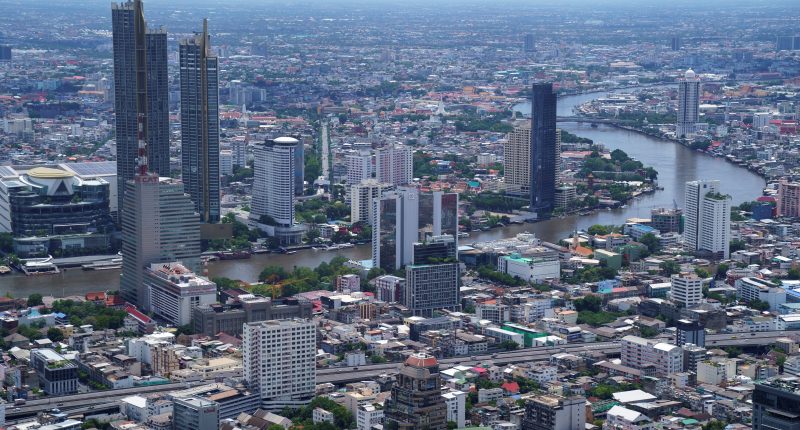Thailand’s Finance Ministry, in collaboration with the Bank of Thailand, is set to raise its inflation target range by 0.5% for the year 2025. This increase aligns with strategic economic adjustments and seeks to offer more flexibility in monetary policy for sustainable economic growth.
Thailand to Raise 2025 Inflation Target Range by 0.5%
1. Finance Ministry and Bank of Thailand Set New 2025 Inflation Goals
In a recent discussion, Deputy Prime Minister and Finance Minister Pichai Chunhavajira met with Bank of Thailand Governor Sethaput Suthiwartnarueput, along with top executives, to finalize the proposed inflation targets for 2025. This annual meeting, held on October 28, focuses on setting inflation benchmarks that ensure the country’s economic policies are aligned.
Proposal to Increase Inflation Target Range
The Finance Ministry suggests raising the current target from 1-3% to 1.5-3.5%, widening the flexibility of the central bank’s monetary policy without changing the overall spread. This 0.5% increase could allow the Bank of Thailand more flexibility to reduce interest rates if economic conditions necessitate it.
2. Impact on Central Bank’s Monetary Policy
A primary goal of this adjustment is to provide the Monetary Policy Committee (MPC) with greater flexibility in setting rates. By increasing the inflation target, the Finance Ministry hopes the central bank will have room to lower interest rates, potentially aligning with the U.S. Federal Reserve’s recent 50-basis-point rate cut.
Central Bank’s Potential for Rate Cuts
The proposed adjustment provides a buffer for interest rate cuts. Though a 50-basis-point cut may be seen as significant by some, there are indications that the Bank of Thailand could consider a more conservative 25-basis-point reduction. This approach could still benefit over 84 million loan accounts across financial institutions, easing payment burdens and supporting economic resilience.
3. Adjustments to Inflation Range in Support of Economic Growth
The ministry’s strategic adjustment to the inflation target aims to align Thailand’s policies with current economic pressures and global financial trends.
- Supporting Economic Expansion: A raised inflation range would allow for more adaptability in monetary policy, ensuring the central bank can focus on both inflation management and economic growth.
- Household Debt Management: The MPC recently voted to reduce the policy rate by 25 basis points to ease household debt. An adjusted inflation target range could help ensure that future policy decisions support this approach.
Planning and Approval for 2025 Inflation Target Range
After the Finance Ministry submits the adjusted range to the central bank, both entities will finalize the target before presenting it to the Cabinet for approval and implementation. The approved range will then serve as the MPC’s guideline for managing inflation in the coming fiscal year.
4. Benefits of the Adjusted Inflation Target Range
Raising the inflation target range is a proactive step that could significantly benefit Thailand’s economy. With more flexibility in monetary policy, the Bank of Thailand can be better equipped to address any immediate economic shifts.
- Immediate Impact on Loan Payments: Lower interest rates would decrease the interest burden for millions, potentially boosting household spending power.
- Long-Term Economic Growth: The flexibility to reduce rates as needed could enhance the Thai economy’s resilience, especially in the face of global uncertainties.
Conclusion: Thailand’s Strategic Inflation Adjustment for a Resilient Economy
The 0.5% increase in the inflation target range for 2025 is a strategic move to provide the Bank of Thailand with greater monetary flexibility while addressing inflation management and growth objectives. With potential benefits for household debt and national growth, the updated range is expected to help stabilize the Thai economy, offering a balanced approach for investors, businesses, and households.









